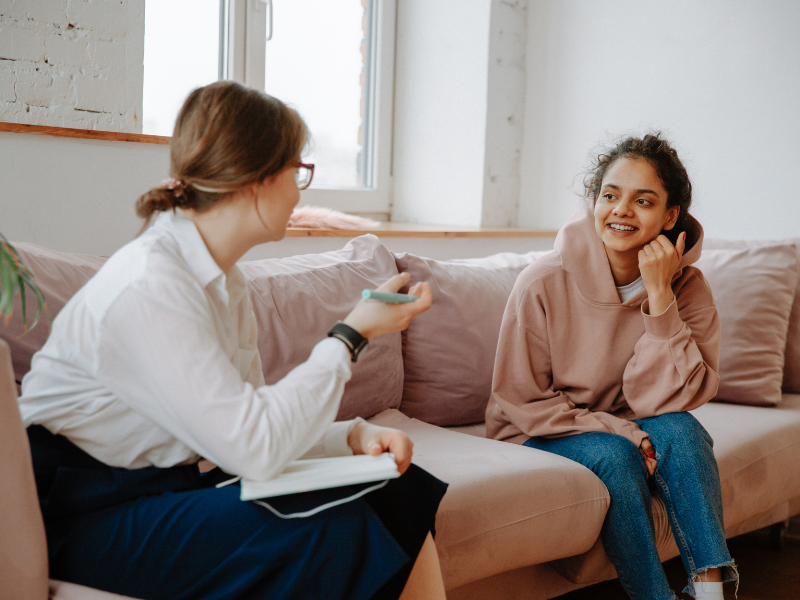It’s My First Time to Therapy - What Should I Expect?
If you have just booked your first-ever counselling session, the first thing I recommend is to take a moment to recognize this really important step you have taken. Some individuals think about connecting with mental health support for years – decades even, before feeling ready to form a therapeutic relationship with a clinician. So, whether here at Apricot or with another clinical practice, I want to acknowledge the decision you have made – kudos!
So, what comes next? And what will happen in your first session? While every clinician’s process will be a bit different, most clinicians will begin by providing you with something called an intake form. This form asks various questions about you, such as demographic information, family history, education/work experience, and your current and previous concerns relating to mental health. The more information you provide on this form, the more your clinician will be able to understand you and your goals/needs, so support can be focused and meaningful.
After completing the intake form, you will be prepared for your first session – a big step! Typically, in your first session, your clinician will use the information gathered from the intake form you completed to begin a conversation to get to know you better. This first session is a time for you to get to know your clinician as well! Asking questions about their therapeutic work and training can help you decide whether this is a relationship that fits right for you. Here are some questions that can help during your first connection:
· How long have you been in practice?
· Have you worked with individuals like me and my background/needs?
· What types of therapy are you trained in/have experience with? Or do you have a specialty?
· Are you licensed or certified?
Just like your clinician will be gathering information about you, you can gather as much information about your clinician as you need to decide whether this is the right fit for you. Remember, no good therapeutic work can be done with someone you cannot feel truly open and vulnerable with. While you may not be ready to get into super deep conversations right off the bat, it is important to feel comfortable in having a conversation with your clinician; if not, it might be wise to keep looking. To drive this point home, I like to use the metaphor of shopping for a new sweater. If you see a nice sweater that catches your eye in a store, what do you do? Do you feel obligated to purchase it without trying it on? Of course not! Shopping for a clinician is no different.
During this initial session, your clinician will also go over something called informed consent (note: this is usually also a part of the intake screening, so it may be included in your intake form). During this time, your clinician will discuss your right to confidentiality in session as well as the few limits to this confidentiality (i.e.: if there are reasonable grounds to believe you may harm yourself or someone else). Confidentiality is a foundational part of building any therapeutic relationship, and any competent clinician will ensure this is made clear to you right away.
At the end of your session, your clinician will most likely ask you how you felt about the session and ask about future sessions. Remember: counselling is a decision guided by you! Even if you agree to engage in future counselling sessions with your clinician, that decision can always change. We are here to support you in a way that best suits you, not us. Being honest about how you felt in session is important. If there is something your clinician said or did that made you uncomfortable, let them know, so they have a chance to address it.
Finally, I am frequently asked by individuals what they should bring to their first session. Good question! I recommend bringing a notepad and writing tool in case there is anything your clinician says that you would like to take note of. I also recommend bringing tissues and something soothing, like a cup of tea. Therapeutic work can elicit many intense emotions, so having something of comfort can help with these moments.
So, now you have a clearer understanding of what to expect during your first counselling session. This, of course, is only a general overview and can vary from clinician to clinician. If you have specific questions about the initial stages of your clinician’s counselling process, I encourage you to reach out to them before your first session and try to have them answered. If there is something important you feel I have missed, please reach out and let me know.
- All the best in your wellness journey!


